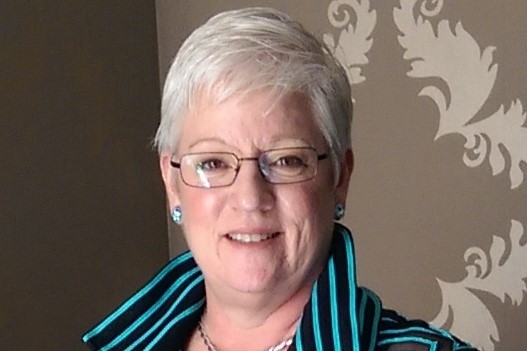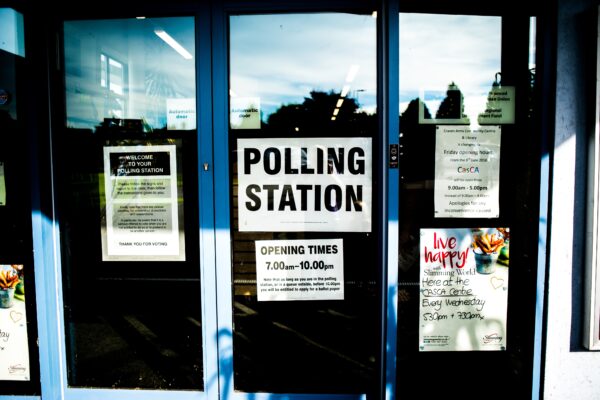By: Joann Kingsley, PAVA Voting Rights Advocate / Paralegal, Disabilities Law Program, Community Legal Aid Society, Inc.

One in four people eligible to vote has a disability; yet people with disabilities have long faced some of the greatest barriers to participating in our elections despite federally mandated polling place accessibility as outlined in the Americans with Disabilities Act (ADA) of 1990. Title II of the ADA requires state and local governments to “ensure that people with disabilities have a full and equal opportunity to vote… and it applies to all aspects of voting, including polling places or vote centers.” Still, in Delaware, accessibility for voters with disabilities is consistently overlooked.
The Disabilities Law Program (DLP) at Community Legal Aid Society, Inc. (CLASI) — Delaware’s designated Protection and Advocacy (P&A) organization — undertakes state-wide polling place monitoring to assess the accessibility of polling places. The DLP recently released its “2022 Delaware General Election Accessibility Report,” (“report”) with detailed information and photographs showing deficiencies at many polling places. The report noted that while new voting machines are a step toward improved accessibility, there is also still much work to be done.
The bottom line is clear — Delaware’s voter accessibility shortfalls are not difficult to resolve, they are simply not prioritized.
Good intentions are not enough. We need intentionality.
Without a concrete plan, good intentions can become wishes masquerading as objectives. Intentionality on the other hand requires a defined direction and purpose with measurable goals, agreed upon priorities, and adequate funding (which only occurs when the goals are prioritized and promoted). It involves a committed and deliberate effort to achieve a specific outcome, in this case, identifying, addressing, and eliminating barriers that prevent people with disabilities from exercising their fundamental right to vote privately and independently.
So, what can Delaware’s Department of Elections (DOE) do to show intentionality in making voter accessibility a priority? First, no action can be truly inclusive until the DOE incorporates a “nothing about us without us” perspective. Persons with disabilities must be involved in the decision-making processes that directly affect them.
Only then, can the following recommendations outlined in the DLP report be effective:
VOTING EQUIPMENT
Include people with disabilities in field-testing new equipment, including e-Pollbooks and the MVP, (multilingual virtual poll worker) that provides video remote interpreting in ASL or other languages. The e-Pollbook currently in use has many great features but some voters with disabilities experienced difficulties in seeing the small font or being able to reach and sign the screen with their hand or a stylus.
We further encourage partnering with disability groups to consider and test new technology that improves accessibility. The DOE could also improve the quality, consistency, and clarity of responses to voter questions by providing scripts for poll workers to use on Election Day.
VOTING LOCATION
Accessibility must be essential to selecting a polling place. We encourage the DOE to include individuals and groups with knowledge of accessibility issues in the selection process well in advance of an election. These individuals and groups should be invited to participate in joint site inspections.
The DLP also urges the Department of Elections to ensure that polling places located within public schools must only use the accessible entrance and parking lot.
POLL WORKERS
The DLP report recommends improvements in the recruitment and training of poll workers, as well as in the content and format of the poll worker training materials. We strongly advocate for a more inclusive and diverse pool of volunteers to work at the polls and intentionality in actively recruiting volunteers from communities of color, youth/high school and college students, people with ASL and foreign language skills, and people with disabilities. Poll worker training should include the importance of ADA compliance, technological advances in voting equipment and assistive technology and disability etiquette.
ACCESSIBILITY TRAINING & EDUCATION
Being intentional involves providing training and education to election officials and staff to raise awareness about disability rights, accessible voting practices, the requirement for accommodations, and the importance of complying with the ADA. We strongly encourage the DOE to develop relationships with local sources of disability-related services and support to lead this educational effort.
PUBLIC EDUCATION
In addition to accessible voting machines and polling places, the ADA also requires state and local governments’ web content to be accessible, but compliance is maddeningly slow. The DOE must ensure content, format, and mediums used for election-related public information are not only accessible, but that the targeting and distribution is intentional about reaching historically marginalized and low-information communities.
The DLP’s Advocacy for Voting Access (PAVA) program welcomes the opportunity to engage in discussions with DOE officials and staff members about the needs and opportunities to ensure a better experience for voters with disabilities and poll workers who may not be accustomed to serving people with disabilities
By embracing the principle of "nothing about us without us" and being intentional in the approach to planning, messaging, and public outreach, the Department of Elections can ensure that the voices, experiences, and needs of voters with disabilities are integrated into all aspects of election administration.

